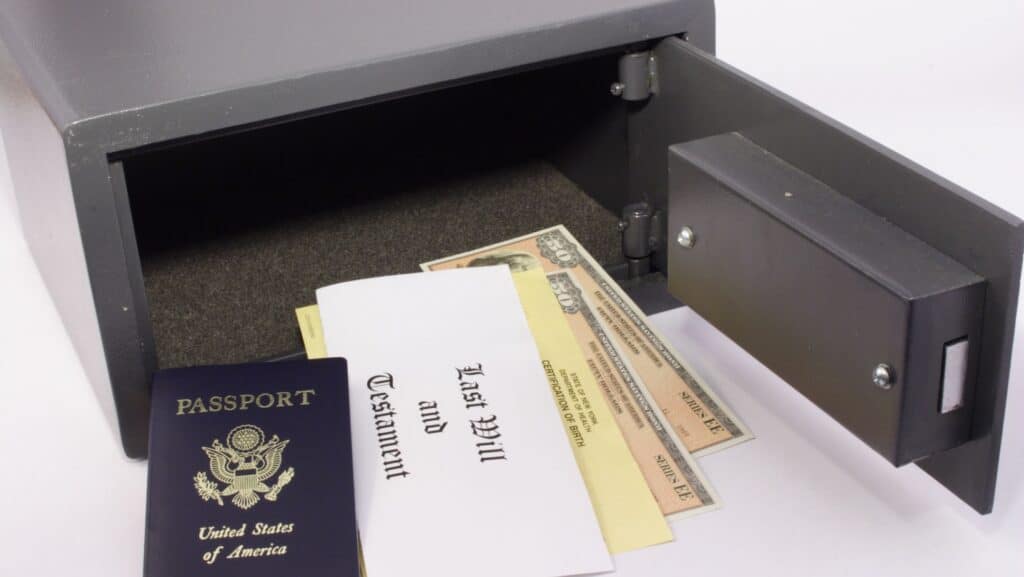8 Things You Didn’t Know Should Be in Your Will (And What Happens If They’re Not)
A will is one of those things we all know we should have, but many of us put it off—until it’s too late. Whether you’re young and healthy or entering retirement, creating a will isn’t just about money. It’s about clarity, peace of mind, and ensuring your wishes are respected when you’re not around to speak for yourself.
So, when exactly is the best time to write a will? Is it okay to use an online service like LegalZoom, or should you always go through a lawyer? And what should you make sure is included, no matter which route you choose?
Let’s dive into the answers that matter most.
The Best Time to Write a Will? Sooner Than You Think

The truth is, the best time to write a will is now—before you think you need one.
If you’re over the age of 18 and have assets (even modest ones), dependents, or just specific wishes about how your affairs should be handled, you need a will.
Key life events that should trigger the drafting (or updating) of a will include:
- Turning 18: Legally, you’re now an adult. If you were to die unexpectedly, your parents wouldn’t automatically control your estate without legal documentation.
- Getting married or divorced: Your marital status significantly affects inheritance, and laws may not reflect your current wishes.
- Having children: Perhaps the most compelling reason of all—if you don’t name a guardian, the court will choose one.
- Buying a home or starting a business: Major financial moves mean more to protect and more complexity in how those assets are handled after death.
- Illness or injury: If a diagnosis prompts you to think about the future, it’s a sign you should take action.
- Becoming a caregiver: If you’re responsible for someone else (like a disabled sibling or aging parent), you’ll want to include plans for their care.
Waiting until “someday” could leave your loved ones in legal limbo.
Are Online Will Services Like LegalZoom Good Enough?

Online services like LegalZoom, Trust & Will, Quicken WillMaker, and others have made estate planning more accessible than ever. They’re fast, affordable, and user-friendly, but they’re not right for everyone.
When Online Wills Work Well
- You have a simple estate: A home, a bank account or two, and some personal belongings.
- You don’t have a blended family, complex business holdings, or international assets.
- You’re creating a basic will that names beneficiaries, appoints guardians, and distributes property.
- You want something in place now and plan to review it with an attorney later.
For example, LegalZoom offers state-specific templates, the ability to designate guardians and executors, and even the option to consult with an attorney for an additional fee.
When You Should Use a Lawyer Instead
- You have a high net worth estate or significant assets that could trigger estate taxes.
- You have a blended family or wish to disinherit someone.
- You have a child with special needs and need to set up a special needs trust.
- You own a business, especially if you have partners or want to pass it to heirs.
- You want to prevent will contests, especially in cases where your wishes may be questioned.
Hiring an estate attorney ensures everything is legally airtight, specific to your state, and tailored to your unique needs. While more expensive upfront, it can prevent expensive and painful disputes later.
What Should Always Be Included in a Will?

Whether you go digital or sit down with a lawyer, a valid will should always include several key elements:
1. Your Full Legal Name and Statement of Intent
This may seem obvious, but your will needs to clearly identify who you are and affirm that the document is your final will and testament, created voluntarily and while of sound mind.
2. Executor Designation
The executor is the person responsible for carrying out your wishes—paying debts, distributing assets, and handling the legal details. Choose someone trustworthy, organized, and willing to take on the responsibility. Always name an alternate.
3. Guardian for Minor Children or Dependents
If you have kids under 18 or care for someone with disabilities, your will should name who you want to raise them. Courts give serious weight to this designation, even though the final decision is up to a judge.
4. Asset Distribution
Clearly spell out who gets what—money, property, personal belongings. Use full names and avoid vague language like “my cousin” or “my friend.” Be specific, especially with sentimental or valuable items.
5. Residuary Clause
This is a catch-all section that dictates who should get everything else that isn’t specifically mentioned. It prevents leftover assets from going through intestate (state-determined) distribution.
6. Witness Signatures
Most states require at least two adult witnesses who aren’t beneficiaries. Some also require a self-proving affidavit, which makes probate easier. Follow your state’s rules to ensure your will is valid.
7. Digital Assets and Online Accounts
Increasingly important: include access instructions for digital assets like email, social media, and cryptocurrency. List account information and who should manage or close them.
8. Funeral Wishes (Optional)
Although not legally binding, you can include guidance on cremation, burial, or memorial preferences. But note: wills are sometimes read after the funeral. Consider discussing this part with your family in advance.
Updating and Storing Your Will

A will is not a one-and-done document. Review it every few years, and especially after major life changes like marriage, divorce, births, deaths, or big purchases.
And don’t forget to store your will securely:
- Keep the original in a fireproof box or safe.
- Give a copy to your executor or attorney.
- Let your family know where it is—not just that it exists.
Final Thoughts: The Cost of Waiting

Too many people assume wills are only for the elderly or wealthy. But dying intestate (without a will) means your state—not you—decides who inherits your belongings, who raises your children, and who handles your affairs. The result is often confusion, court delays, and family conflict.
Creating a will is one of the most loving, responsible actions you can take. Whether you choose an online service or work with a professional, don’t wait. Take the time now to make your wishes known—clearly, legally, and in writing. Your future self—and your loved ones—will thank you.
Resources
General Information About Wills and Estate Planning
- American Bar Association – Estate Planning FAQs
- Nolo – What Is a Will?
- National Institute on Aging – Advance Care Planning
Online Will-Making Services
- LegalZoom – Last Will and Testament
- Trust & Will – Online Will-Based Estate Plans
- Quicken WillMaker & Trust by Nolo
Guardianship and Children
- U.S. Department of Health & Human Services – Guardianship
State-Specific Probate and Will Requirements
- FindLaw – State Laws on Wills
- NOLO – State Probate Laws
Digital Assets and Online Accounts in Wills
- Consumer Reports – How to Manage Your Digital Legacy
You may want to read: Social Media After Death: What Happens to Your Accounts?
Join Us

Join us on this empowering journey as we explore, celebrate, and elevate “her story.” The Queen Zone is not just a platform; it’s a community where women from all walks of life can come together, share their experiences, and inspire one another. Welcome to a space where the female experience takes center stage. Sign up for our newsletter so you don’t miss a thing, Queen!






